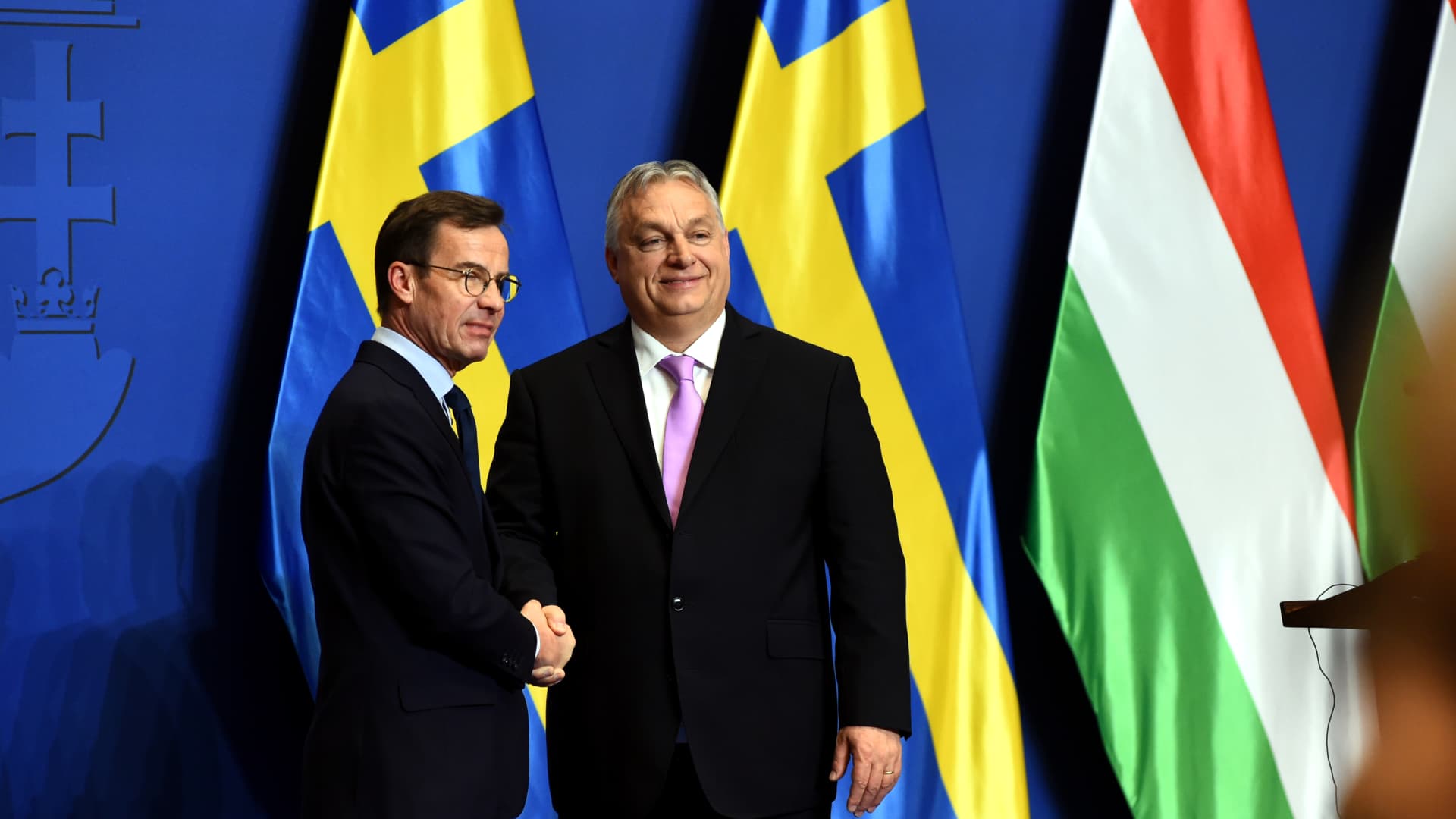Hungary on Monday voted to approve Sweden’s NATO accession bid, ending months of diplomatic negotiations and finalizing Stockholm’s membership almost two years after it first applied to join the military alliance.
Hungarian lawmakers voted in favor of Sweden’s membership after overcoming long-standing opposition from governing party members led by Prime Minister Viktor Orban.
The Scandinavian country will become the 32nd NATO member, coming under the fold of Article 5 of the treaty, which vows that an attack on one member is an attack on all of them.
Shortly after the vote, Swedish Prime Minister Ulf Kristersson said on the X social media site that it was a “historic day” for his country.
NATO Secretary-General Jens Stoltenberg also noted in a social media post that the addition of Sweden would make the alliance “safer and stronger.”
Sweden applied to join NATO in May 2022 — at the same time as Finland — in a historic overhaul of its policy of military nonalignment following Russia’s invasion of Ukraine. Its accession expands NATO’s presence in Northern Europe, as the alliance seeks to bolster its defenses.
While a vast majority of NATO members backed Stockholm’s bid from its early days, Orban was resistant amid Swedish criticism over Hungary’s democracy. NATO requires unanimous support from all members before allowing a new admission.
In a meeting in Budapest, Hungary, on Friday, Orban and his Swedish counterpart vowed to overcome their differences and noted that they were “prepared to die for each other.”
The countries also signed a military pact, in which Sweden agreed to sell four new Gripen planes.
“To be a member of NATO together with another country means we are ready to die for each other,” Orban said Friday, according to The Associated Press. “A deal on defense and military capacities helps to reconstruct the trust between the two countries.”
Hungary’s vote in support of Stockholm follows that of Turkey, the other remaining holdout, which agreed last month to ratify Sweden’s membership following a yearlong delay over security concerns. Ankara had accused Stockholm of being too lenient toward groups it views as threats, including Kurdish militants and members of a network that it blames for a failed coup in 2016.





